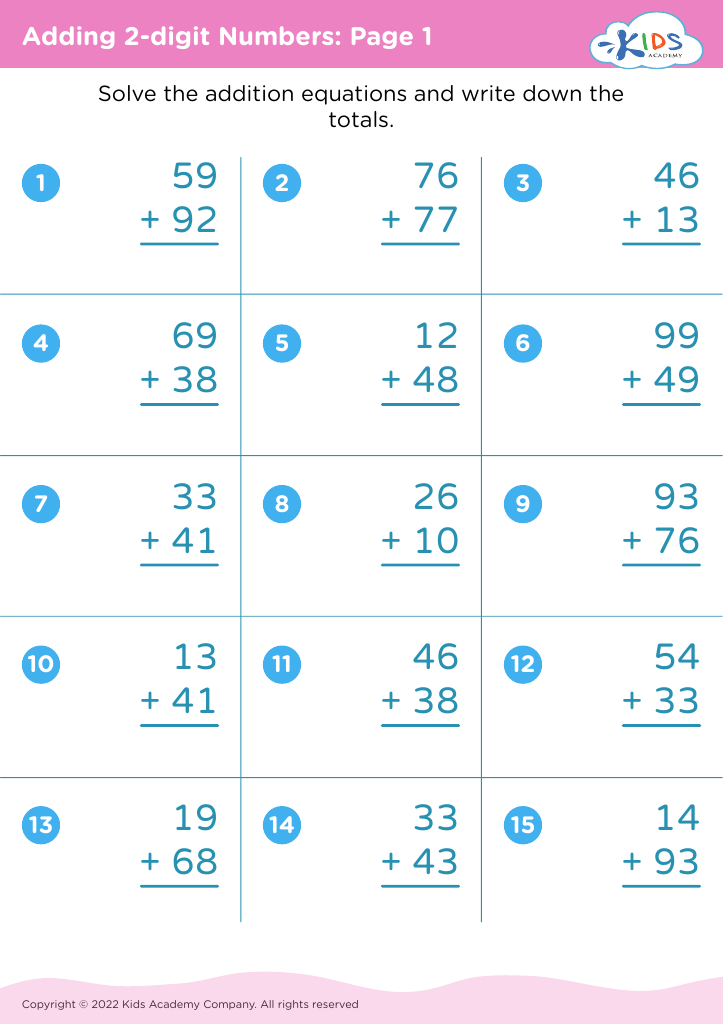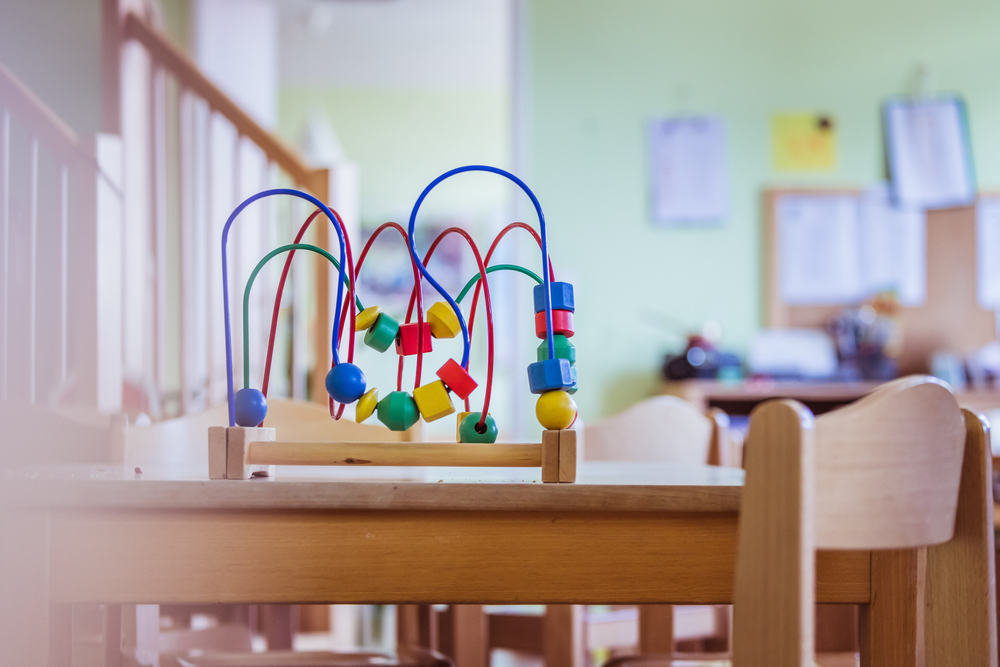Recognizing numbers Math Worksheets for Ages 4-7
8 filtered results
-
From - To
Introduce your child to the exciting world of numbers with our "Recognizing Numbers Math Worksheets for Ages 4-7." Designed to make learning fun and engaging, these worksheets help children develop essential number recognition skills. Perfect for young learners, each activity reinforces the ability to identify and understand numbers through colorful illustrations, games, and hands-on exercises. The progressive tasks ensure that kids build confidence as they grasp foundational math concepts. Explore our collection today and give your child a head start in math, setting the stage for academic success. Let the journey into numbers start with joy and curiosity!
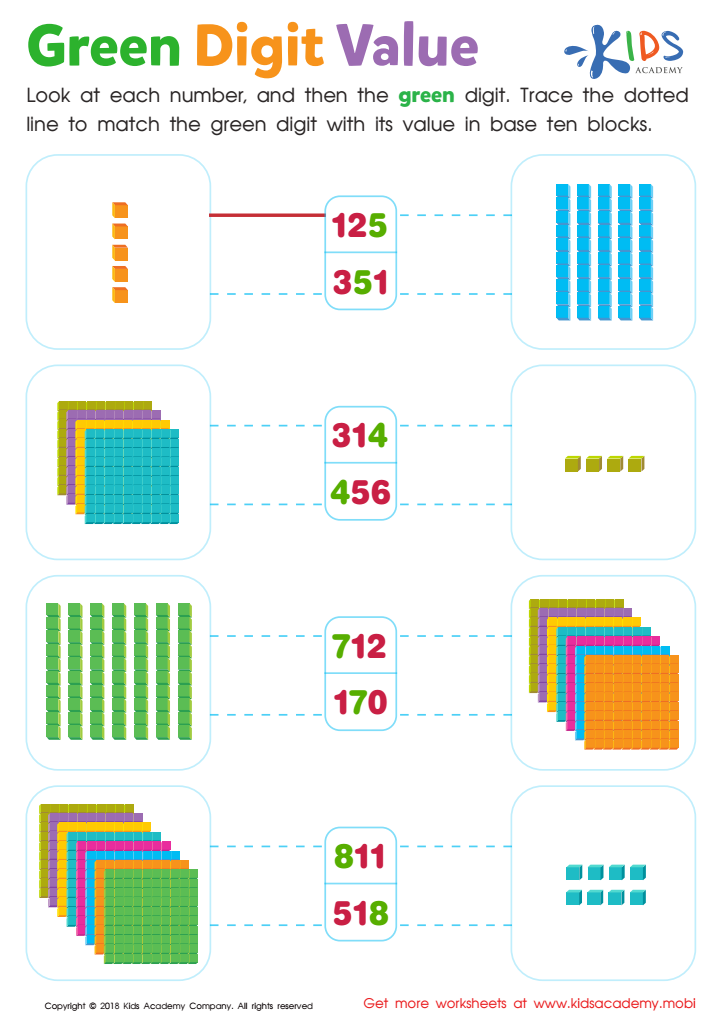

Green Digit Value Worksheet
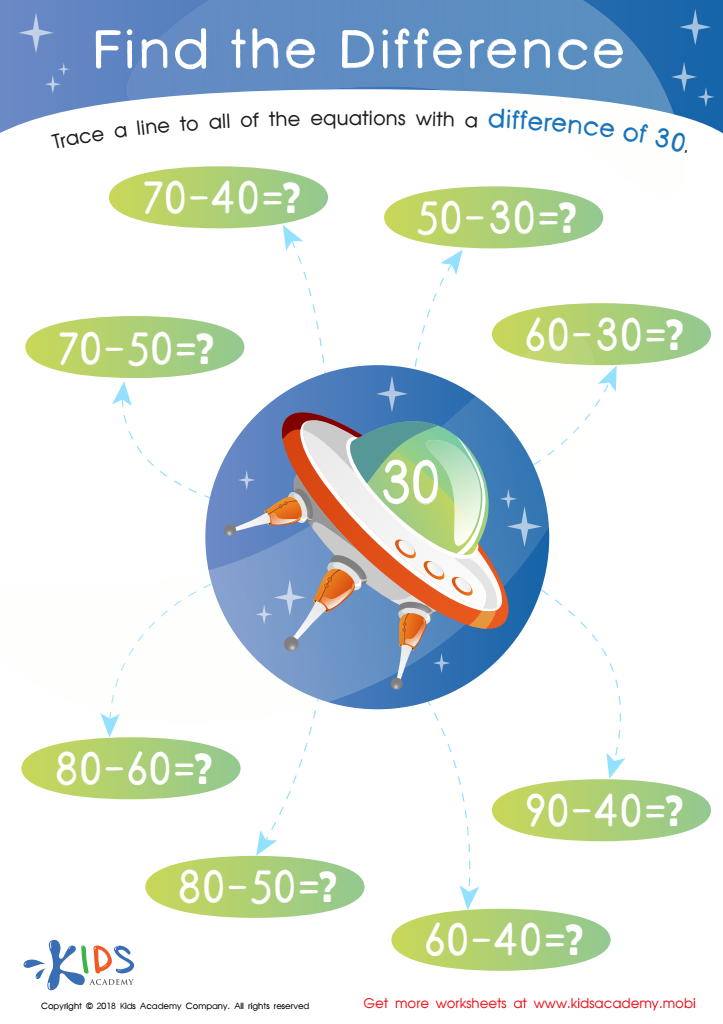

Find The Difference Worksheet
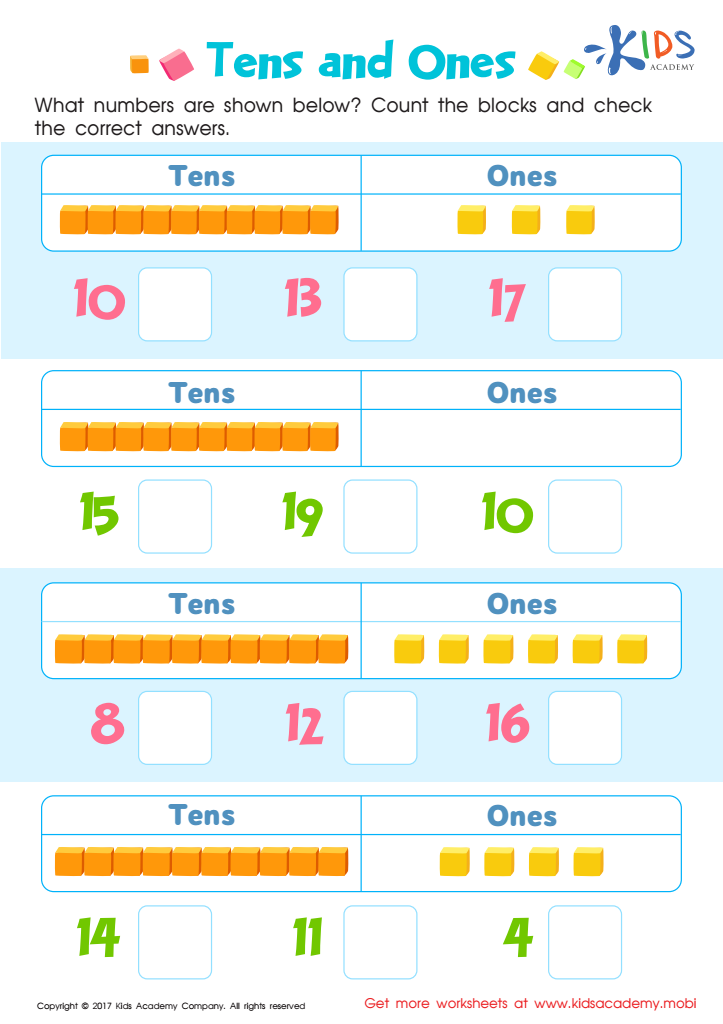

Tens and Ones Worksheet
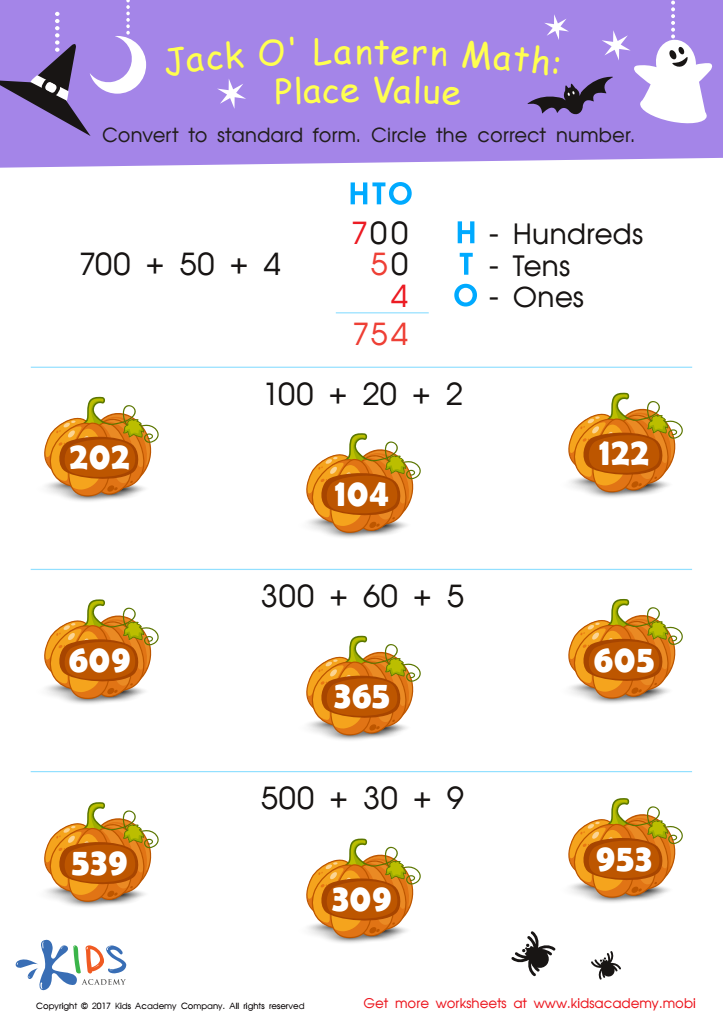

Free Place Value Worksheet
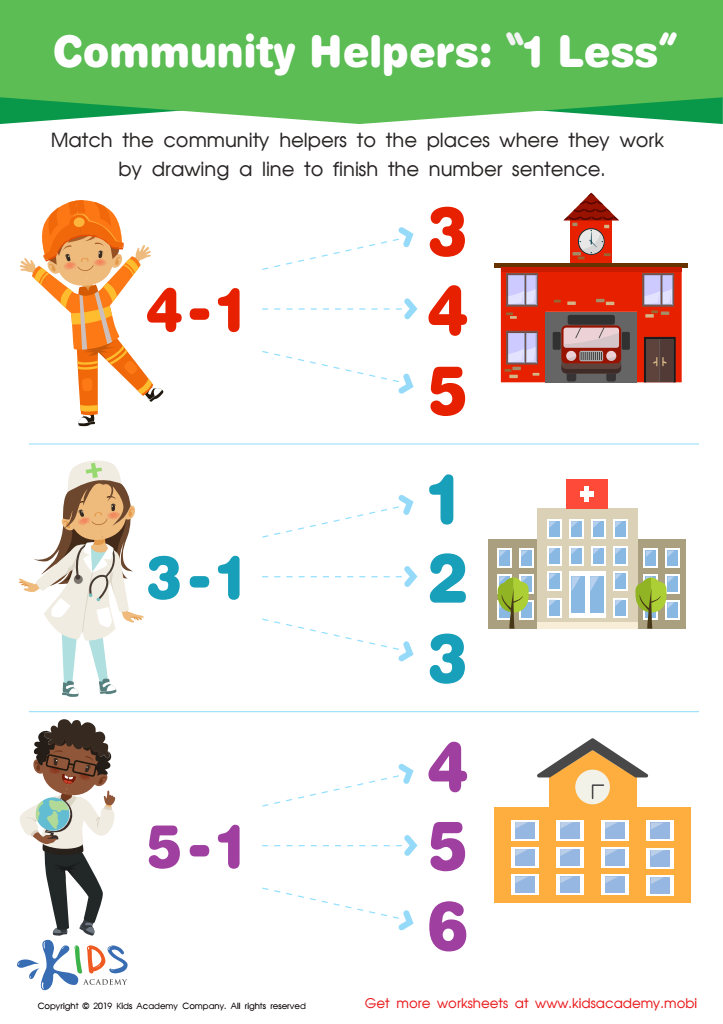

Community Helpers: 1 less Worksheet
Recognizing numbers in early childhood, specifically ages 4-7, is crucial for foundational math skills. During this developmental stage, children are naturally curious and absorbent, making it the perfect time to introduce fundamental concepts. Early numerical recognition fosters cognitive development, enabling children to understand and interpret the world quantitatively.
Numeral recognition is directly linked to a child’s ability to perform basic arithmetic operations later on. If children can’t recognize numbers accurately, they may struggle with addition, subtraction, and other more complex math concepts as they progress in their education. It also aids in developing their counting skills, which are essential for tasks such as sorting, measuring, and even telling time.
Additionally, strong number recognition skills enhance children’s confidence in their mathematical abilities. Children who are confident in their number skills are more likely to succeed in other areas of math and across their academic experience.
Parents and teachers play a critical role by creating a positive learning environment with engaging and age-appropriate activities that make learning numbers fun and practical. Such encouragement helps instill a love for learning, setting the stage for lifelong mathematical understanding and achievement.
 Assign to My Students
Assign to My Students


